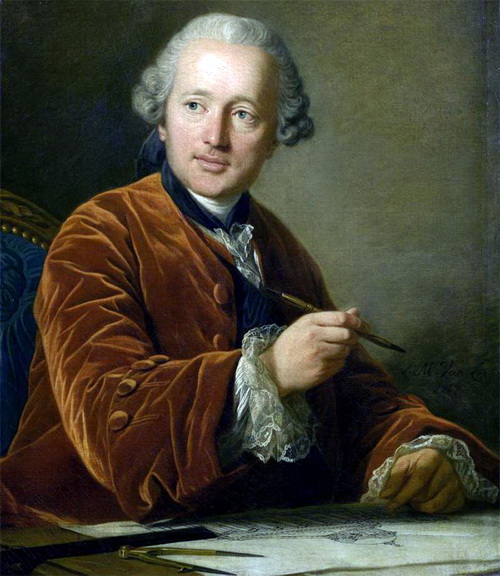Denis Diderot was a philosopher and writer. He was born in Langres, France. He was the oldest son of a well-to-do worker. In his hometown, he studied at a school run by the Jesuit Order. He received the preparation to succeed as a canon to his mother’s brother. When he finished his studies, he decided to move to Paris in 1734 to study at the University of Paris degree in arts. Then, he worked for almost a decade as a mathematics teacher, as well as, Latin, Greek and modern languages.
Diderot used to be part of the Parisian bohemian world, which helped him to strengthen his knowledge and met many characters dedicated to letters and the arts. He also worked as editor of an English encyclopedia of Ephraim Chambers, in it he served as a translator from English into French. Thanks to the collaboration of Jean le Rond D’Alembert, he led to a new writing that included 35 volumes. It was called “Encyclopedia or reasoned dictionary of arts and crafts”. This work was made in collaboration with Voltaire and Montesquieu. The Encyclopedia took a treacherous tinge, making propaganda of weight against ecclesiastical authority, superstition, conservatism and semi-feudal order. Over the months, the volumes of the Encyclopedia had increased to 17. The second edition was made several years later in 1780.

Of his works, we can also highlight “The religious” (1796), “The nephew of Rameau” (1761), translated into German by Goethe, “Jacques the fatalist” (1796), “Letters on the blind for the use of those who see” (1749) and “D’Alembert’s dream” (1830).
Years after the publication of his work Philosophical Thoughts, in which he proclaimed his deistic tendency, he generated a condemnation of the Paris Parliament. But this situation did not stop him from being admired by many. The publisher Andre Le Breton, looked for him and asked him to be the director of the Encyclopedia. For much of his life, Diderot devoted his efforts to make what he was, without hesitation, his most emblematic work of the Enlightenment, which contributed to the beginning of a new thought, breaking the mental structures of the moment.
The problems arising from the publication of his ideas did not stop. In 1749, was imprisoned for a month in Vincennes for the crime of intellectual debauchery, due to the disclosure of his letter to the blind for use by those who can see. The authorities claimed that it contained a skeptical tone of the text and abundant agnostic postulates. In jail, he received several visits from friends and important people, such as Rousseau.
The Vatican also added its voice to the sentence against Diderot and his works, ordering a new suspension; D’Alembert was intimidated and forced to leave the company, despite this the unconditional support of Guillaume-Chrétien de Malesherbes allowed the printing to continue privately. In 1764, Diderot got the publication of the last ten volumes of the text and abandoned the responsibilities being the publisher. He preferred to take new paths in literary life.
Then, he began a period of intense literary production. His thoughts on the interpretation of natures embodied in various texts, where he proclaimed the superiority of experimental philosophy over Cartesian rationalism. Certainly, many of his works remained unpublished until he died, although they were analyzed by his friends. Some of those works are two philosophical novels: «The nun» and «Jacques the fatalist», as well as the masterful dialogue “The nephew of Rameau”, translated by Goethe into German in 1805.
Nazira Artykbayeva,
Librarian of the International Book Department.

